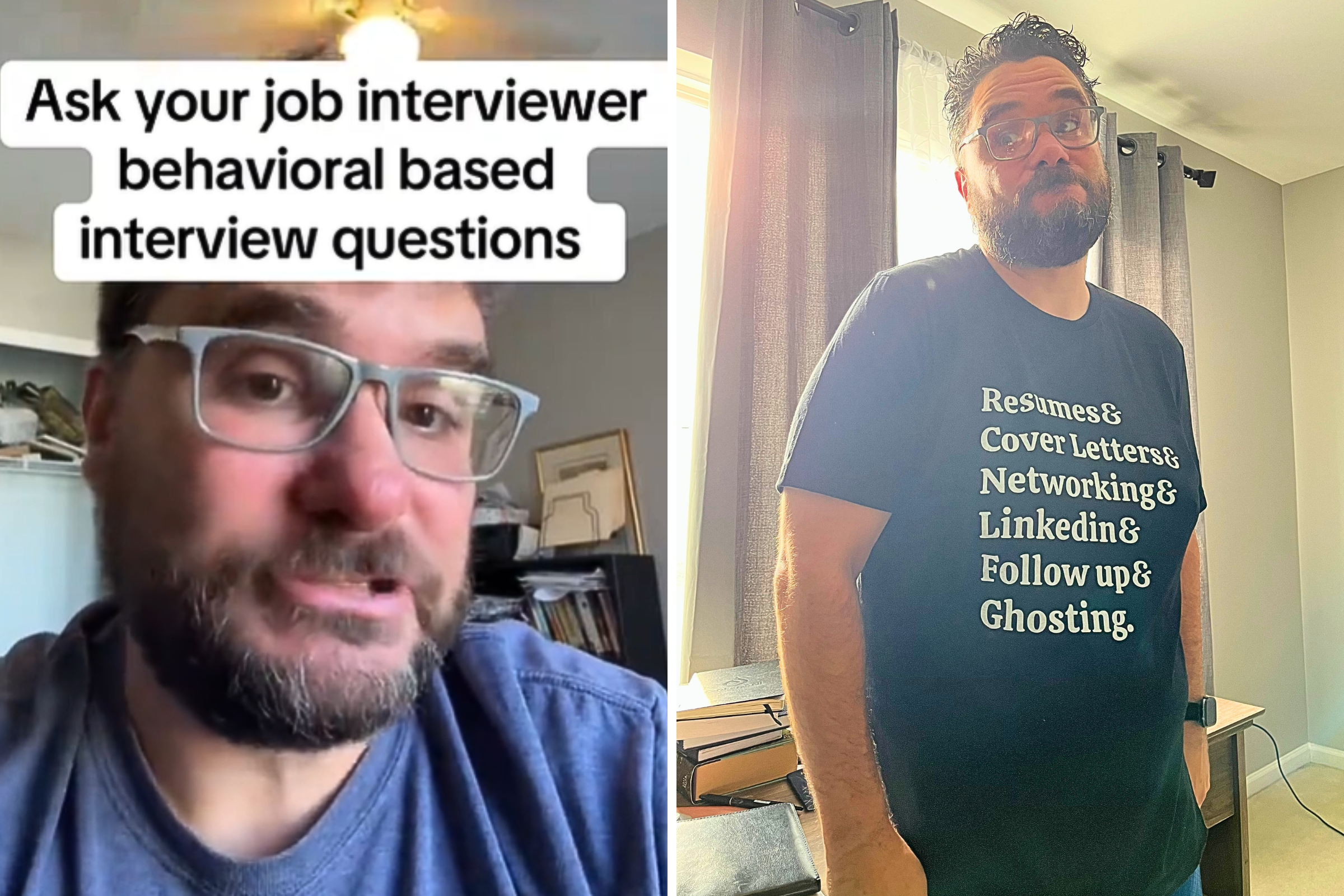In a job market overflowing with skill and talent, standing out in an interview is a tough gig for many job seekers.
Former recruiter, Mike Peditto, wants to change that by encouraging candidates to ask bolder questions during job interviews. These questions, which he dub “behavioral,” are designed to help hopeful employees figure out whether the company they are applying to would be the right fit for them. His insights, borne of over a decade of hiring experience, aim to empower candidates to gain a deeper understanding of potential employers and showcase their own preparedness and strategic thinking.
“I think a lot of people view asking questions at the end of an interview as this step they HAVE to do, but in reality, it should be the part you are most excited about,” Peditto told Newsweek. “It should be something that helps you determine if this is the right role for you.”
After an unexpected layoff at the peak of his career, and a subsequent redundancy shortly after, Peditto began posting his advice online. He never expected to become the internet’s go-to guy for hiring advice and interview tips, but he is enjoying this new lease of life.
@realisticrecruiting
“I accidentally seemed to become both the recruiting and job-seeking face of a terrible job market on social media,” he said. “In less than one year, I gained 200,000 followers on social media and built both a professional network and a community for frustrated job seekers and struggling recruiters to come together.”
His focus is now on empowering viewers to ask the right, most “beneficial, questions during their allocated interview time. Peditto showed his followers how they could start to ask interviewers behavioral-based questions in a video from July 28, which has since been liked more than 76,000 times. He provided examples such as, “Can you tell me about a time you helped someone on your team progress in their career?” and “Can you share an experience where you had to manage a dispute between two co-workers and the role you played in resolving it?”
The former recruiter emphasized the importance of these questions for learning about company culture and management style, urging candidates to go beyond the usual, superficial inquiries that are often thrown about in panic at the end of interviews.
“The reason I made this video is because I don’t think enough candidates really put time and energy into the questions they ask on a job interview,” he said. “As someone who conducts interviews constantly, I almost always hear the same things which are generally very surface level, or are things I have already talked about and make me feel like you weren’t really listening.”
Peditto believes that behavioral-based questions are not only intuitive but also beneficial for fostering deeper conversations.
He added: “Behavioral-based questions are the easiest way to ask for very specific information, and allow the person interviewing you to think rather than just telling you the same answers to the same questions they always give. This often leads to a better conversation and a better idea about the role.”
The video, while well-intentioned and mostly well-received has welcomed a number of critical comments.
“‘These are the questions that will…’ Get you a rejection email,” one viewer said.
Another added: “People don’t do this. I have done it in my last two interviews and got the job at both.”
“I suspect that the hiring manager would be unable to answer many of those questions.”
The careers expert acknowledges that his advice may not universally apply to every job or interviewer, but that on the whole, it is worth taking into consideration.
“I’m not shocked by the huge split among viewers on if this is a good idea or not,” he said. “It’s really important for me to stress that there is no universal best way to get a job.
“Doing something like this will not work at every role; there will be managers who don’t want to answer them, but I do think people will be more open to them than jobseekers think.”
He believes that candidates must tailor their approach and be thoughtful about their interview strategies to stand out positively in an increasingly competitive market.
“A lot of the pushback is from people saying this is only a good idea if the job market isn’t bad, but I think it is a good idea because the job market is bad,” he said. “The idea is to stand out above a very crowded field.
“I think too many people interview to not lose the job rather than to try to get the job and that is not working for them.”
Peditto aims to virtually support candidates in taking on a more active and engaged role in their interviews, seeing them as opportunities for mutual assessment rather than one-sided evaluations.
He added: “It’s impossible to point at any one thing and say this is what got you the job or what lost you the job, but I think trying to demonstrate you are different and have really put thought into where you work and what questions you want to ask about that job is a good strategy.”
